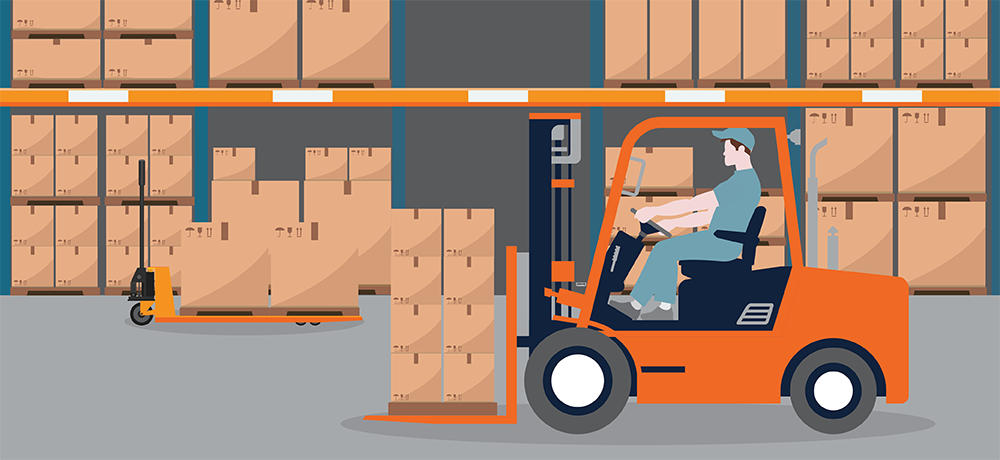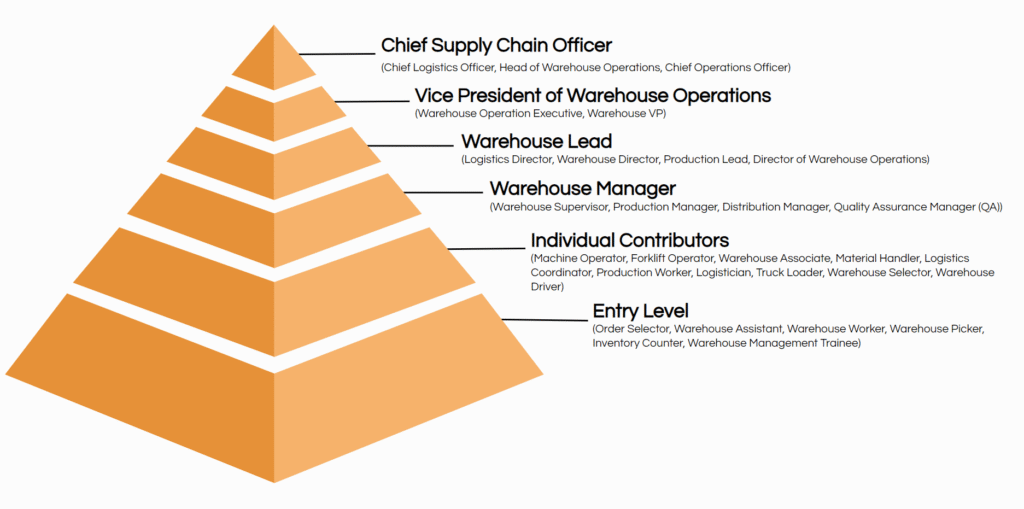The Ultimate Guide to the Warehouse Associate
Introduction to the Warehouse Associate Role
A Warehouse Associate is a logistics professional responsible for fulfilling the crucial operations behind receiving, processing, and storing inventory according to purchase orders and company policies. These essential workers ensure that shipping schedules are met with meticulous attention to detail, guaranteeing timely delivery and loss prevention while maintaining organized warehouse spaces In today’s fast-paced e-commerce environment, the role of warehouse associates has become increasingly vital to supply chain efficiency and customer satisfaction. These professionals serve as the backbone of distribution centers, retail warehouses, and manufacturing facilities, ensuring that products move seamlessly from receiving to shipment. The position offers entry-level opportunities in logistics with potential for advancement to supervisory and management roles for dedicated individuals.

Key Responsibilities and Daily Tasks
Warehouse associates perform diverse duties that vary depending on their specific employer and industry sector. Their primary goal is to facilitate the smooth operation of warehouse activities while maintaining accuracy and efficiency throughout the process.
Core Daily Responsibilities:
- Receiving and Processing Shipments: Warehouse associates inspect incoming deliveries to ensure accuracy, check for damage, and confirm compliance with company standards. They sort, label, and store items in designated locations following inventory management protocols
- Order Fulfillment Operations: These professionals accurately pick, pack, and prepare customer orders for shipment, ensuring products are handled safely and efficiently to minimize damage and delays
- Inventory Management: Warehouse associates perform regular cycle counts and inventory audits to maintain accurate stock levels, updating records using warehouse management systems (WMS) to ensure real-time accuracy
- Equipment Operation: Many warehouse associates safely operate forklifts, pallet jacks, and other material-handling equipment after receiving proper certification and training
- Safety and Maintenance: Keeping the warehouse clean, organized, and free of hazards is essential for maintaining a safe work environment. Associates report any maintenance or safety issues to supervisors promptly
Table: Common Warehouse Associate Responsibilities
| Daily Tasks | Frequency | Importance Level |
|---|---|---|
| Receiving shipments | Daily | High |
| Order picking and packing | Daily | High |
| Inventory management | Daily | High |
| Equipment operation | As needed | Medium |
| Safety inspections | Continuous | High |
| Documentation | With each transaction | High |
Essential Skills and Qualifications
While formal education beyond a high school diploma is not always required for warehouse positions, certain skills and qualifications significantly enhance a candidate’s employability and performance in this role.
Must-Have Qualifications:
- Educational Background: A high school diploma or equivalent is typically the minimum educational requirement for most warehouse associate positions
- Physical Capabilities: The ability to lift and move objects weighing up to 50 pounds regularly and occasionally heavier items with assistance is essential due to the physically demanding nature of the work
- Technical Proficiency: Basic math skills for inventory and order accuracy, along with familiarity with warehouse management systems (WMS) or inventory software, are increasingly important in modern warehouse operations
- Certifications: Forklift operation certification is highly valued and sometimes required, with specific licenses needed for different types of equipment

Critical Soft Skills:
- Organizational Skills: Warehouse associates must manage their time, strength, and mental energy effectively to accomplish tasks efficiently while maintaining organized physical spaces
- Attention to Detail: Meticulous attention to detail ensures products meet quality standards, orders are fulfilled accurately, and inventory records remain precise
- Team Collaboration: As team players, warehouse associates require strong communication skills to collaborate effectively with coworkers and supervisors
- Time Management: The ability to keep up with fast-paced environments without compromising work quality is essential in warehouse settings that operate on strict schedules
Work Environment and Schedule
Warehouse associates typically work in climate-controlled storage facilities, though environments can vary depending on the industry and specific employer The work is generally considered blue-collar and includes significant physical labor and equipment operation. Some positions may involve fieldwork, such as delivering goods to customers using company vehicles.
Regarding work schedules, most warehouse associates work approximately 40 hours per week with opportunities for overtime Warehouses that operate 24 hours typically have shifts scattered throughout the day, with some associates working late nights while others clock in as early as 6 AM. Weekend shifts are often mandatory in many industries, and peak seasons may require 10 to 12-hour shifts to meet increased demand
Salary Expectations and Benefits
According to market data, the average salary for a warehouse associate in Canada is approximately $35,100 per year, which translates to an hourly rate of about $18 Entry-level positions typically start around $31,200 annually, while experienced workers can earn over $44,850 per year. In the United States, hourly rates generally range between $15.50 and $22.96, depending on experience, location, and specific responsibilities
Several factors influence earning potential for warehouse associates:
- Experience Level: Those with years of experience typically earn significantly more than those in entry-level positions
- Geographic Location: Salaries vary by region, with some locations offering higher compensation due to cost of living differences and demand for workers
- Employer Size: Large companies often provide higher salaries due to greater resources and more complex operations
- Specialized Skills: Certifications in equipment operation or additional technical skills can increase earning potential
Most full-time warehouse positions include benefits packages comprising health insurance, retirement plans, paid time off, and sometimes professional development opportunities Many employers also offer overtime opportunities during peak seasons and performance-based bonuses for meeting or exceeding key metrics
Career Advancement Opportunities
While warehouse associate is often considered an entry-level position, numerous growth opportunities exist for motivated individuals. The expansion of e-commerce has significantly increased demand for warehouse professionals, creating pathways for advancement into supervisory and management roles
Potential Career Paths:
- Warehouse Loader: Specializes in packing goods into shipping containers and delivery trucks, ensuring items remain safe during transit
- Warehouse Clerk: Focuses on recording orders and supervising processing to ensure customers receive their orders correctly and on time
- Forklift Operator: Develops expertise in moving inventory around the warehouse using specialized equipment, often requiring specific certifications
- Warehouse Supervisor/Manager: Advances to oversee teams of associates, manage operations, and ensure efficiency throughout warehouse processes
With additional training and experience, warehouse associates can progress to roles such as inventory specialist, logistics coordinator, or operations manager, often with significantly increased compensation and responsibility.
How to Become a Warehouse Associate
Entering the warehouse profession requires minimal formal education but benefits from specific preparation and training.
Education and Training:
The minimum educational qualification for becoming a warehouse associate is typically a high school diploma or equivalent While previous warehouse experience is preferred, many employers offer on-the-job training to familiarize new hires with specific equipment and company policies Vocational training programs in logistics or supply chain management can provide advantageous knowledge and skills.
Gaining Experience:
Prospective warehouse associates can gain valuable experience through volunteer opportunities in retail and warehouse environments. Entry-level positions often serve as gateways to the industry, allowing individuals to develop practical skills while earning income
Certification:
Obtaining certifications, particularly for equipment operation such as forklift licenses, significantly enhances employment prospects and potential earnings Some employers provide this training internally, while others prefer candidates who already possess these qualifications.
Industry Outlook and Future Trends
The demand for warehouse associates remains strong, driven largely by the continuous growth of e-commerce and online shopping As consumers increasingly expect faster delivery times, efficient warehouse operations become more critical to business success, ensuring steady demand for skilled associates.
Technological advancements are transforming warehouse operations, with automation and digital management systems becoming more prevalent. While some fear automation may reduce human labor needs, most industry experts believe technology will primarily enhance human capabilities rather than replace workers entirely. Warehouse associates who adapt to these technological changes and develop skills in operating and working alongside automated systems will likely have the best employment prospects.
The future warehouse associate will need to balance traditional physical skills with technical proficiency as data management systems, robotics, and automated equipment become more integrated into logistics environments. Continuous learning and adaptability will be essential traits for long-term success in this evolving field.
External Resources and Further Reading
For those interested in exploring the warehouse associate profession further, the following external resources provide valuable information:
- Occupational Outlook Handbook: Material Moving Occupations – The U.S. Bureau of Labor Statistics provides comprehensive data on job outlook, salary information, and related occupations in material moving.
- https://sjxsm.shop/america-visa-jobsemployment-opportunities-2025
- Warehouse Education and Research Council – WERC offers resources, metrics, and best practices for warehouse and logistics professionals, including research reports and educational events.
- Material Handling Institute – MHI provides industry news, education, and networking opportunities for professionals in material handling and logistics.
- OSHA Warehouse Safety Guidelines – The Occupational Safety and Health Administration offers safety and health guidelines specific to warehouse operations.
- International Warehouse Logistics Association – IWLA provides resources, advocacy, and education for warehouse logistics professionals across North America.

The warehouse associate role offers a stable career path with opportunities for advancement in the essential logistics and supply chain industry. As commerce continues to evolve, these professionals will remain vital to the global economy, ensuring products move efficiently from manufacturers to consumers. With competitive compensation, clear advancement pathways, and strong job security, warehouse associates play a crucial role in keeping supply chains functioning smoothly in an increasingly connected world.

